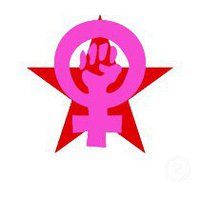
The #MeToo campaign on social media, women sharing of experiences of sexual harassment, shows how a new generation of women, with male supporters, demands that we examine systemic sexual oppression. We will undoubtedly hear complaints that #Me2 is unwarranted. One predictable trope from the Right is what we heard in response to Trump’s pawing and groping: "These are personal matters, not issues that our society has to address. This is life. Get over it."
With breathtaking hypocrisy, right-wing pundits also argue that all of these social issues distract us from what really counts: jobs and the economy. I’m hoping we don’t hear from folks who self-identify as “Left” that #MeToo is another example of a kind of “identity politics” distracting us from the over-riding problems, economic inequality, unemployment, or another kind of social oppression that is far more damaging. Really? After all these years we still have to explain how all forms of oppressions are inter-related and embedded in capitalist economic, social and power relations?
Others have explained more fully then I will here why struggling successfully for human dignity in a capitalist society necessarily involves looking at what happens to people at work. That’s where we spend a lot of our time together. That’s where we have to challenge capitalism’s drive for profit and the employer’s control over how we define our needs as workers and human beings. My #MeToo story occurs at work. It happened in 1980, when most of us didn't have the language to describe sexual harassment, even those of us who had been activists in the women’s liberation movement (a.k.a. second-wave feminism). I was 30, recently moved from California, starting a new job as an English teacher in a high school that had a very high salary and very small classes, in an affluent white suburb of New York.
At the first faculty meeting of the school year, the male principal asked both new teachers to stand so he could introduce us as new colleagues. I was introduced as "the young, attractive, new addition to the English department." Hearing this, a male teacher in the English departmentmade an inaudible comment to those seated near him, and the principal, assuming it was a sexual remark (though it was not), gave the teacher a jocular pseudo-scolding: “Mr. X, calm down.” Widespread laughter followed, but when it died down, I said something like "I was also considered a really good English teacher in the five years I worked in California."
Later that first day of school, the principal interrupted my class, clearly embarrassed, to apologize — for Mr. X’s remark. After hearing his apology, I observed that the principal hadn't mentioned the (male) chemistry teacher's appearance in the introduction, yet my appearance had been the way I was described. The principal said "I guess I'm a male chauvinist pig." I smiled and said, "I guess I'm not."
That was it for the job. Nothing I did was right though nothing I did was wrong. As a probationary teacher I had no rights. The (male) president of the local union was supportive and intervened prudently when he could, but probationary teachers are completely vulnerable. He commented he had never in his career seen a new teacher treated as I was. After two months of anxiety and stress that took a toll on my health, I looked for another teaching job and found one I thought I would like. In January I gave the principal two weeks notice and walked out at semester's end. Before I left a colleague remarked that I looked like a younger version of the principal’s wife, but it wasn't until YEARS later that a light bulb went off: Wow, this was a case of sexual harassment in the workplace. Yup, #MeToo.
Before this episode I had received nothing but excellent evaluations, from supervisors, colleagues, and students. Though I understood I had been nailed for standing up for my rights and there was likely a sexual component of the power struggle, I wasn't able to name the experience as sexual harrassment at work. What I learned was that no matter how well you do your job, the boss can "get you" for something. No one is safe from a supervisor’s prejudice, peccadillos, or abuse of power. That’s why we all need unions and strong protections against employers’ unbridled exercise of authority and authoritarianism. That's why teachers need to have due process – objective evaluation of evidence they are/not doing their jobs well.
#MeToo is about defending human dignity. That’s what unions are about too. It’s the same struggle. Punto final.


Unions aren't about human
Unions aren’t about human dignity, they are about collecting dues and having power over you.